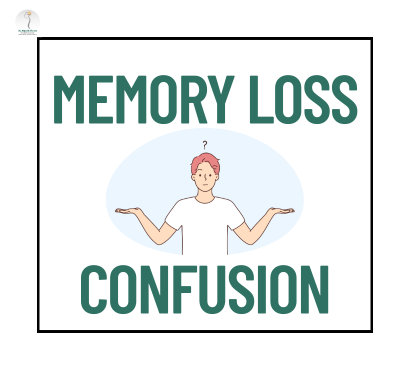Have you or a loved one been forgetting names, misplacing things more often, or feeling mentally foggy? While occasional forgetfulness is normal, persistent memory loss and confusion could be signs of an underlying neurological issue.
In India, conditions such as Alzheimer’s, Parkinson’s, or brain tumors often go undiagnosed in the early stages due to lack of awareness. Understanding the difference between normal aging and serious neurological disorders can help with early diagnosis and effective management.
Understanding the Brain and Its Functions
The brain controls memory, thinking, and coordination. It works through a complex network of neurons and chemical signals. Damage or disease affecting this network can impair cognitive abilities, leading to symptoms such as memory loss, confusion, poor judgment, or even behavioral changes.
Difference Between Normal Forgetfulness and Memory Loss
| Normal Aging | Neurological Concern |
| Occasionally forgetting names | Frequent memory lapses |
| Misplacing items now and then | Getting lost in familiar places |
| Word-finding difficulty sometimes | Trouble following conversations |
| Slower thinking but no impact | Decline in problem-solving or planning |
If memory loss affects daily functioning, it warrants medical attention.
Top Neurological Conditions Linked to Memory Loss & Confusion
1. Alzheimer’s Disease
- Progressive brain disorder causing memory loss, confusion, and behavioral issues
- Common after age 65, but early-onset can begin earlier
- No cure, but early diagnosis helps manage symptoms better
2. Vascular Dementia
- Caused by reduced blood flow to the brain due to strokes or blood vessel damage
- Symptoms: confusion, trouble focusing, and short-term memory loss
3. Mild Cognitive Impairment (MCI)
- Memory loss greater than expected for age, but not severe enough for dementia
- May remain stable or progress to Alzheimer’s
4. Parkinson’s Disease
- Primarily affects movement but can lead to cognitive decline over time
- Includes symptoms like tremors, slow movement, and depression
5. Brain Tumors or Injury
- Tumors or trauma (e.g., concussions) can interfere with memory, mood, and coordination
- Symptoms vary depending on the location and size of the tumor
6. Stroke
- Sudden loss of brain function due to a blocked or ruptured blood vessel
- Post-stroke memory issues and confusion are common
7. Infections and Inflammation
- Encephalitis, meningitis, or autoimmune diseases can cause sudden confusion
- Urgent treatment is essential
Warning Signs to Watch For
- Forgetting familiar names, routes, or tasks
- Difficulty following instructions
- Personality changes or irritability
- Disorientation in time or place
- Repeating questions or stories
- Poor judgment or decision-making
Diagnostic Steps Neurologists Use
1. Clinical History and Physical Examination
- Review symptoms, family history, lifestyle, and medications
2. Cognitive Tests
- Mini-Mental State Examination (MMSE)
- Montreal Cognitive Assessment (MoCA)
3. Brain Imaging
- MRI or CT scans to detect tumors, strokes, or brain shrinkage
4. Blood Tests
- Rule out vitamin deficiencies, thyroid issues, or infections
5. EEG or PET Scans
- Evaluate brain activity or identify changes in brain metabolism
Treatment Options
Treatment depends on the underlying cause:
- Alzheimer’s/Dementia: Medications like donepezil, therapy, and memory training
- Parkinson’s: Dopaminergic medication and physiotherapy
- Stroke: Clot-busting drugs, rehabilitation
- Infections: Antibiotics or antivirals
- Tumors: Surgery, chemotherapy, or radiation
Supportive care, counseling, and occupational therapy are also vital in most cases.
Lifestyle Tips to Improve Brain Health
- Eat a balanced, antioxidant-rich diet
- Exercise regularly to boost blood flow
- Practice memory games and puzzles
- Socialize and stay mentally active
- Control blood pressure and sugar
- Get enough quality sleep
Memory loss and confusion should never be ignored. While occasional forgetfulness is part of life, frequent cognitive difficulties can indicate serious neurological conditions. With early diagnosis and the right care, many of these issues can be managed or even reversed.
In India, raising awareness and seeking timely neurological consultation are crucial to preserving brain health. If you or a loved one is experiencing these symptoms, don’t delay in seeking medical advice.
FAQs
Q1. Is memory loss always a sign of Alzheimer’s?
No. While Alzheimer’s is a common cause, memory loss can also result from stress, medications, infections, or vitamin deficiencies.
Q2. When should I see a neurologist for memory problems?
If memory loss affects daily life or is worsening rapidly, consult a neurologist. Early evaluation helps identify treatable causes.
Q3. Can young adults experience neurological memory issues?
Yes. Conditions like traumatic brain injury, epilepsy, or autoimmune diseases can cause memory issues even in young individuals.

